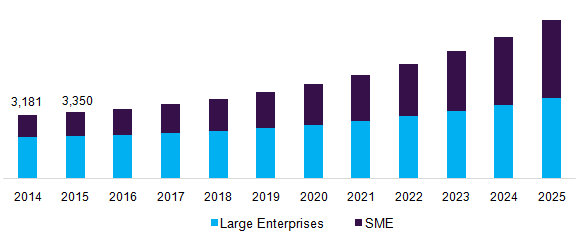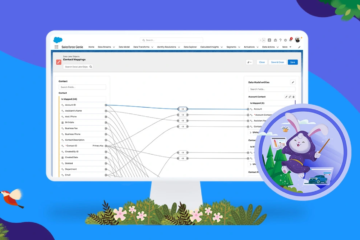We hear a lot about marketing automation these days which is being lauded as the latest and greatest thing in marketing by Marketeers. This hypothesis can be confirmed from increasing Google trends for marketing automation over last five years.
It is a popular belief that Marketing Automation is just a souped-up automatic email or SMS marketing program, but it is not, so what is it? “Marketing Automation empowers marketers to automate tasks and workflows for the marketing and sales process, including prospect and customer profiling on lead scoring, landing pages, and sending automated personalized emails, SMS and web recommendations to support lead nurturing and customer engagement.”

This definition seems too complicated, is it? Well In a very simplistic way; “Marketing automation is a course of action to build an intimate relationship with current and future customers.”
Marketing automation can be achieved via any channel whether it is your website, email, Mobile App, SMS or social media channels and the result can be in the form of new leads, nurtured/qualified the lead, product promotions, Brand development and potentially sales.
Why do we need Marketing Automation?
Well most of us are writing lame and not so a great working content copy of all channels. It can happen because of a magnitude of reason such as the lack of knowledge of whom you are actually addressing. What their needs are, what kind of content they prefer if they are in or out of a buying process. We do not have time to write personalized emails as it is slow and so on…. These hurdles make marketers lame and boring and of the target and it is a huge part of the frustration of not being able to communicate to different persons based on their actual business. What can you achieve with marketing automation? Well I can summarize it for you bellow
Lead your conversations into action: Marketing automation gives you the chance to adapt your communication with people’s behavior which means you are in charge of the conversation, lead it, listen and learn about your audiences different needs and dreams. It is a new direction of your work and how you work, but in the end, it is the only way to stay relevant and attractive to all individuals in your audience.
Creativity means personalization in the world of Marketing Automation: Your skills to create personal connections depend on your ability to add the value of a conversation that takes your leads closer to purchase. To make it happen means much hard work was testing different copy, different content and regularly listen and analyze the outcome.
Marketing Automation also challenges your creativity when it comes to building your nurturing programs: This is not a simple process and neither there is any absolute truth to guide you. The only reality to rely on is the simple rule of trying different ways and continuously improve every single part of it, from copy to call-to-action and more.
Why is marketing automation significant in the first place?
The easiest way to explain why marketing automation is essential is to examine a few of its principal features.
Tracking Prospects: The ability to track the movements of opportunities across your web properties is an indispensable element of a good marketing automation program. When visitors land on your website, they will be asked to complete a form. The marketing automation program operates by adding a cookie to the visitor’s web browser. The cookie will henceforth allow the program to identify the visitor whenever he returns to the site, tracking the frequency of his visits.
Collecting Data: Having the ability to track prospects means you can analyze visitors’ website patterns and gather data on their interests and goals. By using the data collected onto your visitors, your marketing automation programs can segment customers and prospects by typical behaviors, patterns, interests, and demographics. This information has the benefit of allowing you to custom tailor your future offers, so they are more relevant to the individual viewer.
Email Marketing & Lead Nurturing: Automated marketing software can also help keep prospects aware of your brand through email nurturing campaigns. Have you ever received an automated email from Amazon alerting you to certain deals and offers based off of items you previously purchased or viewed? Alternatively, an email from eBay with “Recommendations for you” in the subject heading? These are both prime examples of how marketing automation can accomplish email nurturing.
CRM Integration & Quality of Content: All-in-all, implementing a marketing automation strategy into your marketing plan strengthens communication with your prospects and customers by making it easier for you to send personalized, 1:1 targeted messages. Furthermore, now that you do not have to spend time gathering information from CRM, you have more free time to focus on the quality of your content and messages.
What does Marketing Automation mean for small businesses?
Well this can be understood with the help of following questions:
- Is Marketing Automation is too costly for small businesses?
There’s a reason that 68% of top-performing small businesses are using marketing automation (Gleanster) — these companies understand that efficient and scalable lead management is crucial to business success. It is important to stop looking at marketing automation as a significant cost that may be worthwhile after a certain amount of growth and start looking at it as an investment that will make this growth possible.
- Will implementing Marketing Automation will require an increase in headcount?
Initially, you have to invest in training or hiring a few personal, but with time it will reduce the number of hours you need to manage your day to day activities which directly translates to lower headcount for your business.
- Will sales team benefit from the platform?
95% of Top Performing organizations report sales reps use sales alert capabilities in marketing automation. Sales are 7x more likely to use CRM on a daily basis when marketing automation historical data is in contact or account records in CRM. Marketing automation instantly makes CRM more valuable to sales reps who get lead alerts, prioritized lists for follow-up, and context about how leads engaged with the brand — all within their CRM system.
In fact, Gleanster found that sales reps not only benefit from marketing automation features like real-time sales alerts and lead nurturing, they also see more value from their investment in CRM as a result of having a marketing automation platform in place. Reporting features had also proven helpful for a larger scale, with 94% of small businesses that use marketing automation reporting that marketing and sales executives rely on periodic reports from their platform.
- Will marketing automation require a substantial time investment to see results?
Small business with 1-2 early-stage nurturing campaigns configured in marketing automation estimated the volume of quarterly qualified leads increased an average of 120% because of marketing automation outreach.
What does this mean for small businesses? Even if you do not have time initially to take advantage of all of the capabilities of marketing automation, just building one or two early-stage lead nurturing campaigns can increase your quarterly volume of qualified leads by 120%— a minimal time investment for game-changing results.
Final Take Away: The Automation part is important, but only if you learn from your audience what they want from you. If not, you will end up building many programs without enough value to make your audience attached to your brand. While marketing automation can increase the effectiveness of lead generation and result in increased revenue, it is not a substitute for a customer-centric marketing strategy. Effective marketing plans start with a thorough understanding of your buyer personas and the buyer’s journey as they research and evaluate your products or services.

